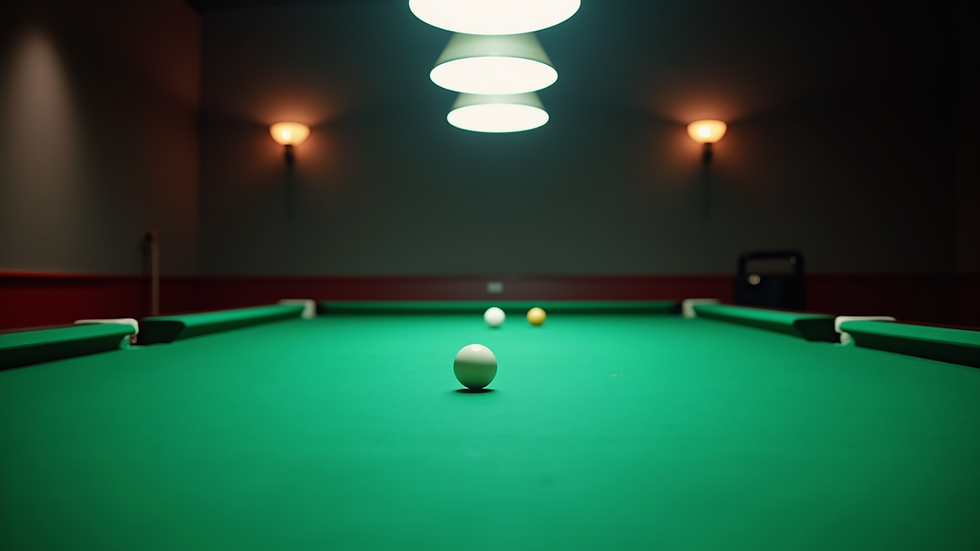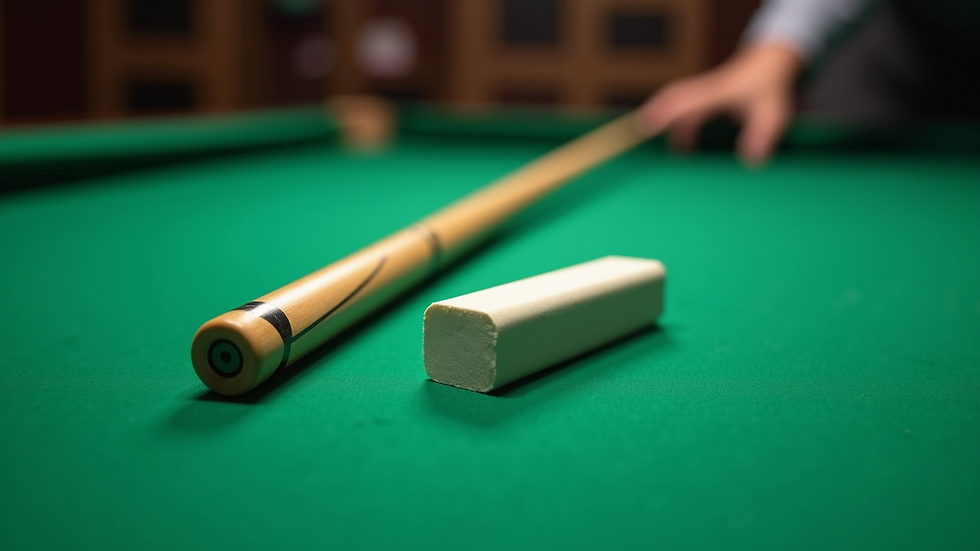Psychological Strategies of Elite Players Coping with Pressure in Snooker
- Dr Paul McCarthy

- Jul 16, 2025
- 4 min read
Snooker is a game that combines technical skill with mental resilience. Top snooker players not only showcase their ability to make difficult shots but also demonstrate an impressive level of mental strength when under pressure. This balance of focus, endurance, and psychological resilience is crucial for success in competitions where every shot can be decisive. This post explores how elite snooker players train their minds to stay focused, manage pressure, and cultivate a winning mindset through various mental training techniques.
Understanding the Snooker Mental Game
To excel in snooker, players must develop a strong mental game that includes focus and concentration. For instance, world-class players like Ronny O'Sullivan and Mark Selby employ methods to handle intense moments during competitions. It is essential for players to build psychological strategies that can significantly enhance their performance.
In fact, mental strength often distinguishes winners from losers in tightly contested matches. For example, during the final of the World Snooker Championship in 2021, Mark Selby remained calm and composed despite being down in the match, ultimately leading him to a crucial victory. This leveled approach helps him make careful decisions even when facing tough opponents.
Training the Mind: The Importance of Mindset
The journey to mastering the snooker mindset includes specialized training techniques. Players use visualization, which involves picturing successful shots and handling intense situations. For example, before an important match, players might spend 10-15 minutes visualizing themselves sinking crucial balls, which can significantly reduce anxiety and improve their actual performance.
Many players also follow a consistent mental training routine. This often encompasses mindfulness practices and breathing techniques aimed at promoting relaxation and clarity, enabling them to tune out distractions. Practicing just five minutes of deep breathing before a match can lead to noticeable improvements in focus.
Focus and Concentration Techniques
Maintaining focus is crucial in snooker. Elite players frequently break the game down into smaller, manageable tasks. For instance, instead of thinking about the entire match ahead, they concentrate solely on executing the next shot. According to research, this targeted approach can decrease mental fatigue, allowing players to sustain high focus levels throughout a long match.
Some players establish specific pre-shot routines to enhance their concentration. This might include adjusting their grip or taking a deep breath, which serves as a mental cue to prepare them for the shot. Veteran players like John Higgins often engage in ritualistic behaviors before critical shots, reinforcing their mental readiness.

Coping with Pressure in Snooker
Coping with pressure in snooker can be intense, especially during high-stakes tournaments. Players develop coping strategies to manage this stress. For example, cognitive restructuring helps them turn negative thoughts into positive ones. If a player thinks, "I cannot afford to lose," they might reframe that to, "I will give my best effort," helping to maintain composure.
Moreover, building a robust support network is crucial. Many players, like Judd Trump, work with coaches or sports psychologists to discuss performance-related challenges, allowing them to navigate pressures more effectively. Open discussions about feelings and performance can encourage mental well-being and resilience.
Psychological Strategies for Sustained Performance
Elite snooker players frequently rely on specific psychological strategies to maintain high-performance levels. One effective technique is self-talk, where players use affirmations and motivational messages to bolster their confidence. Common phrases include "I am prepared" or "I can succeed," which can be especially motivating during tight moments in a match.
Moreover, consistency in routines plays a vital role. Elite players adhere to established mental routines before and during matches to help guide their thinking and keep them grounded. These routines might include warm-up exercises tailored to enhance focus and confidence, which could last 20 to 30 minutes and ensure they are mentally attuned for competition.
Building Mental Strength Through Experience
Gaining experience is pivotal in developing mental strength for snooker players. Learning from setbacks and failures is part of their journey. By reflecting on past performances, players can pinpoint mistakes and apply those lessons in future scenarios. For example, after a disappointing tournament, many players analyze their footage and note areas for improvement, fostering resilience and a growth mindset.
Regular participation in competitive matches enriches their ability to manage pressure effectively. Each match offers valuable opportunities to test their strategies and learn what techniques yield the best results under stress.
The Continuum of Mastering the Snooker Mindset
The journey of mastering the snooker mindset is ongoing and requires consistent dedication to mental training. Players integrate various psychological strategies that encompass focus, concentration, and effective coping mechanisms. This holistic approach allows them to excel in a competitive environment.
As fans and aspiring players observe elite athletes, they can draw valuable insights into psychological resilience and strategic focus. These lessons can inspire their own journey in the sport.

By focusing on mental strength and consistent practice, anyone can learn to navigate high-pressure situations with confidence and poise. Enhancing your mental game is just as essential as refining technical skills, making it a fundamental aspect of achieving success on the green baize.



